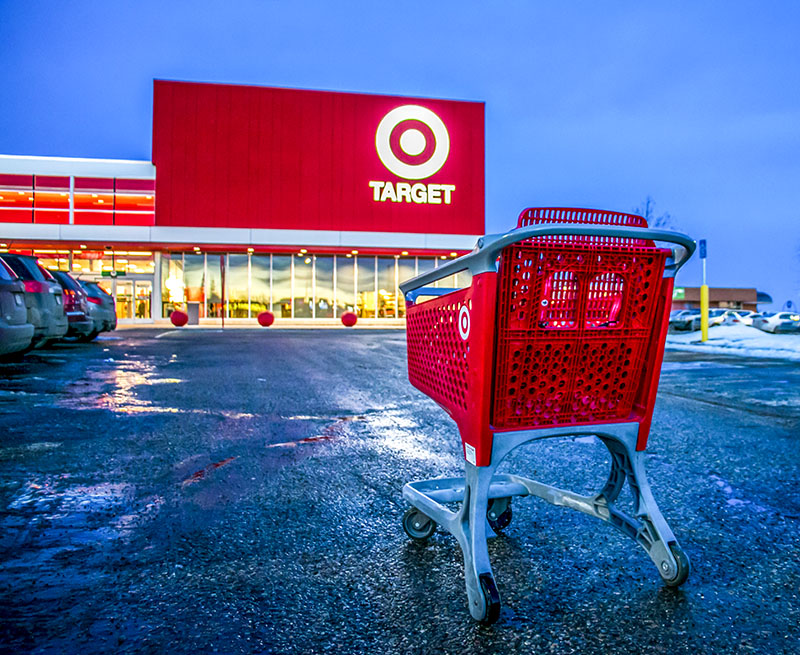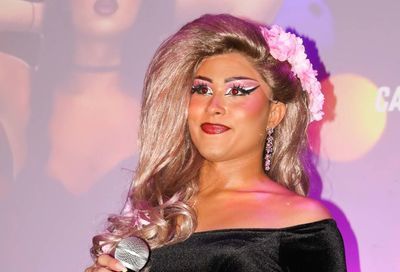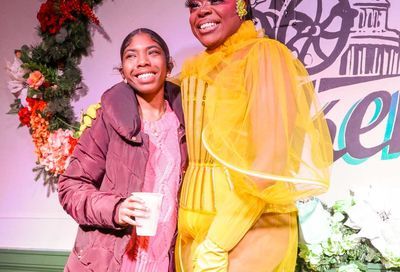TikTok updates guidelines to rout out anti-LGBTQ content
Under the new guidelines, misgendering and deadnaming trans people, and promoting conversion therapy, will be prohibited on the platform.

Social media giant TikTok has banned certain types of anti-LGBTQ content and speech, including content that either promotes conversion therapy or deliberately misgenders or “deadnames” transgender individuals.
On Tuesday morning, the popular video and social networking service updated its Community Guidelines, clarifying what type of content will be removed or made ineligible for recommendation in the “For You” feed. The guidelines were adopted to “further the well-being of our community and the integrity of our platform,” the company said in an announcement.
“At TikTok, we believe people should be able to express themselves creatively and be entertained in a safe, secure, and welcoming environment,” Cormac Keenan, TikTok’s Head of Trust and Safety, said in a statement. “Our Community Guidelines support that by establishing a set of norms so that people understand what kinds of content to create on our platform and viewers know what to report to us.
“Our policies are designed to foster an experience that prioritizes safety, inclusion, and authenticity,” the statement continued. “They take into account emerging trends or threats observed across the internet and on our platform. We also listen to feedback from our community, our US Content Advisory Council, and other experts in areas like digital safety and security, content moderation, health and well-being, and adolescent development.”
Among the changes to the Community Guidelines are a stricter approach to preventing content, such as suicide hoaxes, from spreading on the platform, removing content that promotes unhealthy eating disorders, prohibiting unauthorized access to TikTok, cracking down on the use of the platform for criminal activity, and educating the community about how to spot, avoid, and report suspicious activity.
Specifically, with regard to the LGBTQ community, deadnaming, misgendering, or misogyny will be prohibited from the platform, as well as any content that supports or promotes conversion therapy, also known as sexual orientation or gender identity change efforts.
The update to the LGBTQ-specific policy comes after discussions between TikTok and organizers with UltraViolet, an anti-sexism and gender justice advocacy group, and the LGBTQ media advocacy organization GLAAD. In November 2021, UltraViolet organized an open letter, signed by over 75 groups, including GLAAD, calling on social media platforms to implement explicit policies to protect women, people of color, and the LGBTQ community.
Both organizations had also previously recommended that TikTok implement a policy explicitly prohibiting misgendering and deadnaming. In its 2021 Social Media Safety Index, GLAAD labeled five of the world’s leading social media platforms — including TikTok “effectively unsafe for LGBTQ users” due to the proliferation of anti-LGBTQ content, including hate speech, the lack of protections for LGBTQ users from online harassment or stalking, and the perpetuation of misinformation about LGBTQ people.
“TikTok has become a little safer for women, LGBQ and trans people today,” Bridget Todd, the communications director at UltraViolet, said in a statement. “We applaud TikTok for responding effectively to our recommendations and implementing them into an updated, more protective user policy. Even so, it’s clear social media platforms have a long way to go across the board.”
LGBTQ people have long faced disproportionate amounts of harassment on social media platforms. Last year, a survey by the Anti-Defamation League found that 64% of LGBTQ respondents reported experiencing online hate and harassment, compared to 46 percent of Muslims, 36 percent of Jews and about one-third of Black, Latino and Asian American respondents, reports NBC News.
Trans people, in particular, face high amounts of online harassment. According to a 2019 study conducted by the anti-bullying organization Ditch the Label, and its analytics partner, Brandwatch, in which researchers analyzed 10 million online posts over a three-and-a-half-year period, approximately 1.5 million of the posts, or 15% were transphobic.
Besides TikTok, Twitter is the only other major platform that prohibits misgendering and deadnaming in its harassment policy. But other platforms lag behind, including YouTube, which LGBTQ advocates have criticized for allowing right-wing personalities to misgender and spew anti-trans rhetoric without facing any consequences.
Studies have found that trans people who have been misgendered face increased levels of psychological stress and depression. A 2018 study of a small group of trans people aged 15 to 21 published in the Journal of Adolescent Health found that transgender youths who were allowed to use their chosen name at work, school and at home had a lower risk of depression and suicide. Similarly, The Trevor Project, an LGBTQ-specific suicide prevention and crisis intervention organization, found in its 2021 National Survey on LGBTQ Youth Mental Health that transgender and nonbinary youth who reported having pronouns respected by all of the people they lived with were half as likely to attempt suicide as those who were frequently misgendered.
“When anti-transgender actions like misgendering or deadnaming, or the promotion of so-called ‘conversion therapy,’ occur on platforms like TikTok, they create an unsafe environment for LGBTQ people online and too often lead to real world harm,” Sarah Kate Ellis, the president and CEO of GLAAD, said in a statement. “TikTok’s move to expressly prohibit this harmful content in its Community Guidelines and to adopt recommendations made in GLAAD’s 2021 Social Media Safety Index raises the standard for LGBTQ safety online and sends a message that other platforms which claim to prioritize LGBTQ safety should follow suit with substantive actions like these.”
Support Metro Weekly’s Journalism
These are challenging times for news organizations. And yet it’s crucial we stay active and provide vital resources and information to both our local readers and the world. So won’t you please take a moment and consider supporting Metro Weekly with a membership? For as little as $5 a month, you can help ensure Metro Weekly magazine and MetroWeekly.com remain free, viable resources as we provide the best, most diverse, culturally-resonant LGBTQ coverage in both the D.C. region and around the world. Memberships come with exclusive perks and discounts, your own personal digital delivery of each week’s magazine (and an archive), access to our Member's Lounge when it launches this fall, and exclusive members-only items like Metro Weekly Membership Mugs and Tote Bags! Check out all our membership levels here and please join us today!


























You must be logged in to post a comment.